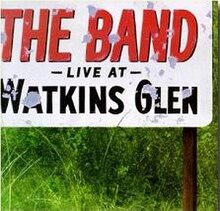
The Band was a Canadian-American rock band formed in Toronto, Ontario, in 1967. It consisted of Canadians Rick Danko, Garth Hudson, Richard Manuel, Robbie Robertson, and American Levon Helm. The Band combined elements of Americana, folk, rock, jazz, country, and R&B, influencing musicians such as George Harrison, Elton John, the Grateful Dead, Eric Clapton and Wilco.

The Band is the second studio album by the Canadian-American rock band the Band, released on September 22, 1969. It is also known as The Brown Album. According to Rob Bowman's liner notes for the 2000 reissue, The Band has been viewed as a concept album, with the songs focusing on people, places and traditions associated with an older version of Americana. Thus, the songs on this album draw on historic themes for "The Night They Drove Old Dixie Down", "King Harvest " and "Jawbone".

Eric "Garth" Hudson is a Canadian multi-instrumentalist best known as the keyboardist and occasional saxophonist for rock group the Band, for which he was inducted into the Rock and Roll Hall of Fame in 1994. He was a principal architect of the group's sound, described as "the most brilliant organist in the rock world" by Keyboard magazine. With the deaths of Richard Manuel in 1986, Rick Danko in 1999, Levon Helm in 2012, and Robbie Robertson in 2023, Hudson is the last living original member of the band.
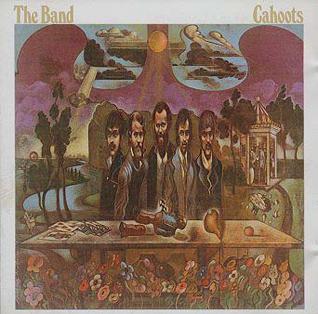
Cahoots is the fourth studio album by Canadian/American rock group the Band. It was released in 1971 to mixed reviews, and was their last album of original material for four years. The album's front cover was painted by New York artist/illustrator Gilbert Stone, while the back cover features a photograph portrait of the group by Richard Avedon. The album features guest vocals from Van Morrison. Libby Titus, the partner of drummer Levon Helm and mother of their daughter Amy Helm, also contributed uncredited backing vocals to "The River Hymn", the first time a woman appeared on a Band album.

Rock of Ages: The Band in Concert is a live album by the Band, released in 1972. It was compiled from recordings made during their series of shows at the Academy of Music in New York City, from December 28 through December 31, 1971. It peaked at No. 6 on the Billboard 200 chart, and was certified a gold record by the RIAA. An expanded release of recordings taken from the same series of shows, called Live at the Academy of Music 1971, was released in 2013.

Moondog Matinee is the fifth studio album by Canadian/American rock group the Band, released in 1973. It consists entirely of cover material reflecting the group's love of R&B and blues music, with one exception in their interpretation of the theme from the film The Third Man.

Northern Lights – Southern Cross is the sixth studio album by Canadian-American rock group the Band, released in 1975. It was the first album to be recorded at their new California studio, Shangri-La, and the first album of all new material since 1971's Cahoots. It was recorded using a 24-track tape recorder, which allowed Garth Hudson to include multiple layers of keyboards on several tracks, and it is the only Band album where all songs are credited as compositions of guitarist Robbie Robertson.

Islands is the seventh studio album by the Canadian-American rock group the Band. Released in 1977 to mixed reviews, it is the final studio album from the group's original lineup.
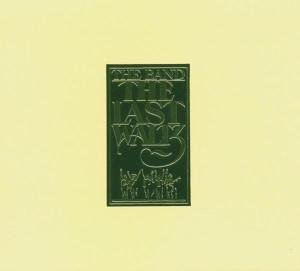
The Last Waltz is the second live album by the Band, released on Warner Bros. Records in 1978, catalogue 3WS 3146. It is the soundtrack to the 1978 film of the same name, and the final album by the original configuration of the Band. It peaked at No. 16 on the Billboard 200.
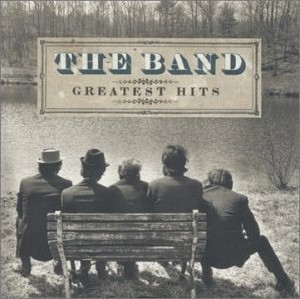
Greatest Hits is a compilation album by the Canadian-American rock group the Band. It was released in 2000 on Capitol Records. The album was released in conjunction with remastered versions of the group's first four albums. It draws very heavily from these records, with thirteen of the eighteen tracks selected from Music from Big Pink, The Band, Stage Fright and Cahoots.

To Kingdom Come: The Definitive Collection is an anthology by Canadian-American rock band the Band, released in 1989. The thirty-one tracks were mostly taken from the group's eight albums on Capitol Records. The group's better-known songs, such as "The Weight", "Up on Cripple Creek", "Chest Fever", "The Night They Drove Old Dixie Down", "The Shape I'm In", "Life Is a Carnival" and "It Makes No Difference", are all present. Rarities such as "Loving You Is Sweeter Than Ever", "Get Up Jake" and "Back to Memphis" are also present.

Across the Great Divide is a box set by Canadian-American rock group The Band. Released in 1994, it consists of two discs of songs from the Band's first seven albums, and a third disc of rarities taken from various studio sessions and live performances. The set is now out of print, having been replaced by the five-CD/one-DVD box set A Musical History which was released in September 2005.
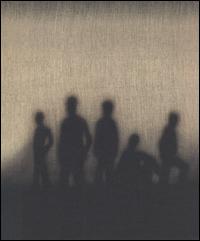
A Musical History is the second box set to anthologize Canadian-American rock group the Band. Released by Capitol Records on September 27, 2005, it features 111 tracks spread over five compact discs and one DVD. Roughly spanning the group's journey from 1961 to 1977, from their days behind Ronnie Hawkins and Bob Dylan through the departure of Robbie Robertson and the first disbanding of the group. The set includes highlights from each of the group's first seven studio albums and both major live recordings and nearly forty rare or previously unreleased performances.
The Summer Jam at Watkins Glen was a July 1973 rock festival outside Watkins Glen, New York, that featured the Allman Brothers Band, Grateful Dead and the Band. The July 28, 1973, event long held the Guinness Book of World Records entry for "largest audience at a pop festival," with an estimated 600,000 fans in attendance at the Watkins Glen Grand Prix Raceway. Approximately 150,000 tickets were purchased in advance, the rest being admitted in what became a "free concert".
"This Wheel's on Fire" is a song written by Bob Dylan and Rick Danko. It was originally recorded by Dylan and the Band during their 1967 sessions, portions of which comprised the 1975 album, The Basement Tapes. The Band's own version appeared on their 1968 album, Music from Big Pink. Live versions by the Band appear on their 1972 live double album Rock of Ages, as well as the more complete four-CD-DVD version of that concert, Live at the Academy of Music 1971, and the 2002 Box Set of The Last Waltz.

"Up on Cripple Creek" is the fifth song on the Band's eponymous second album, The Band. It was released as an (edited) single on Capitol 2635 in November 1969 and reached No. 25 on the Billboard Hot 100. "Up on Cripple Creek" was written by Band guitarist Robbie Robertson, with drummer Levon Helm singing lead vocal.
"Chest Fever" is a song recorded by the Band on its 1968 debut, Music from Big Pink. It is, according to Peter Viney, a historian of the group, the album track that has appeared on the most subsequent live albums and compilations, second only to "The Weight".

"The Shape I'm In" is a song by The Band, first released on their 1970 album Stage Fright. It was written by Robbie Robertson, who did little to disguise the fact that the song's sense of dread and dissolution was about Richard Manuel, the song's principal singer. It became a regular feature in their concert repertoire, appearing on their live albums Rock of Ages, Before the Flood, and The Last Waltz. Author Neil Minturn described the song as "straightforward rock." Along with "The Weight," it is one of the Band's songs most performed by other artists. It has been recorded or performed by Bo Diddley, The Good Brothers, The Mekons, The Pointer Sisters, She & Him, Marty Stuart and Nathaniel Rateliff and the Night Sweats.
"The W.S. Walcott Medicine Show" is a song written by Robbie Robertson that was first released on the Band's 1970 album Stage Fright. It was also frequently performed in the group's live sets and appeared on several of their live albums. Based on Levon Helm's memories of minstrel and medicine shows in Arkansas, the song has been interpreted as an allegory on the music business. Garth Hudson received particular praise for his tenor saxophone playing on the song.

The Night They Drove Old Dixie Down: The Best of the Band Live in Concert is a 1990 compilation of live recordings from American roots rock group the Band released by CEMA Special Markets.
